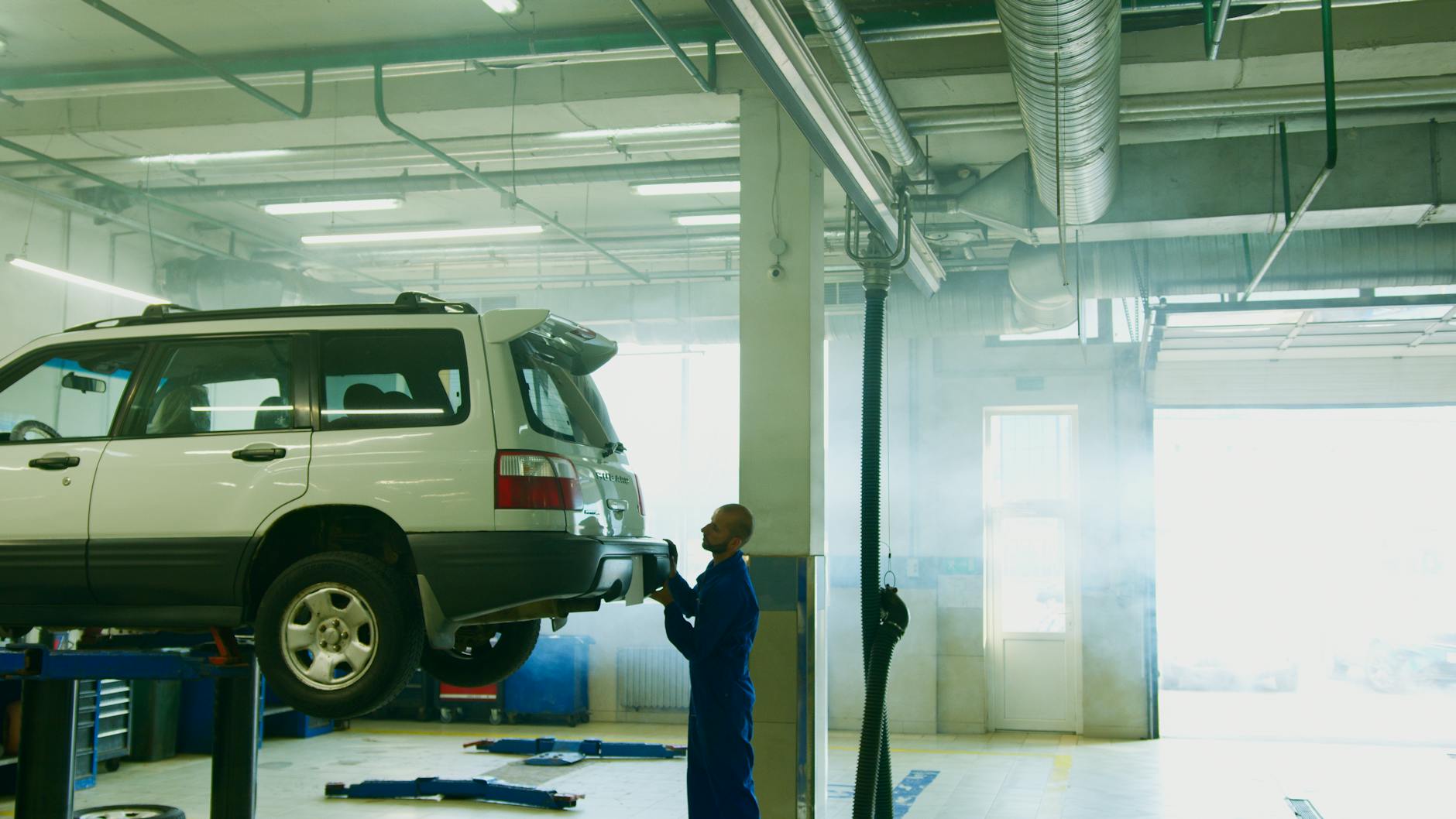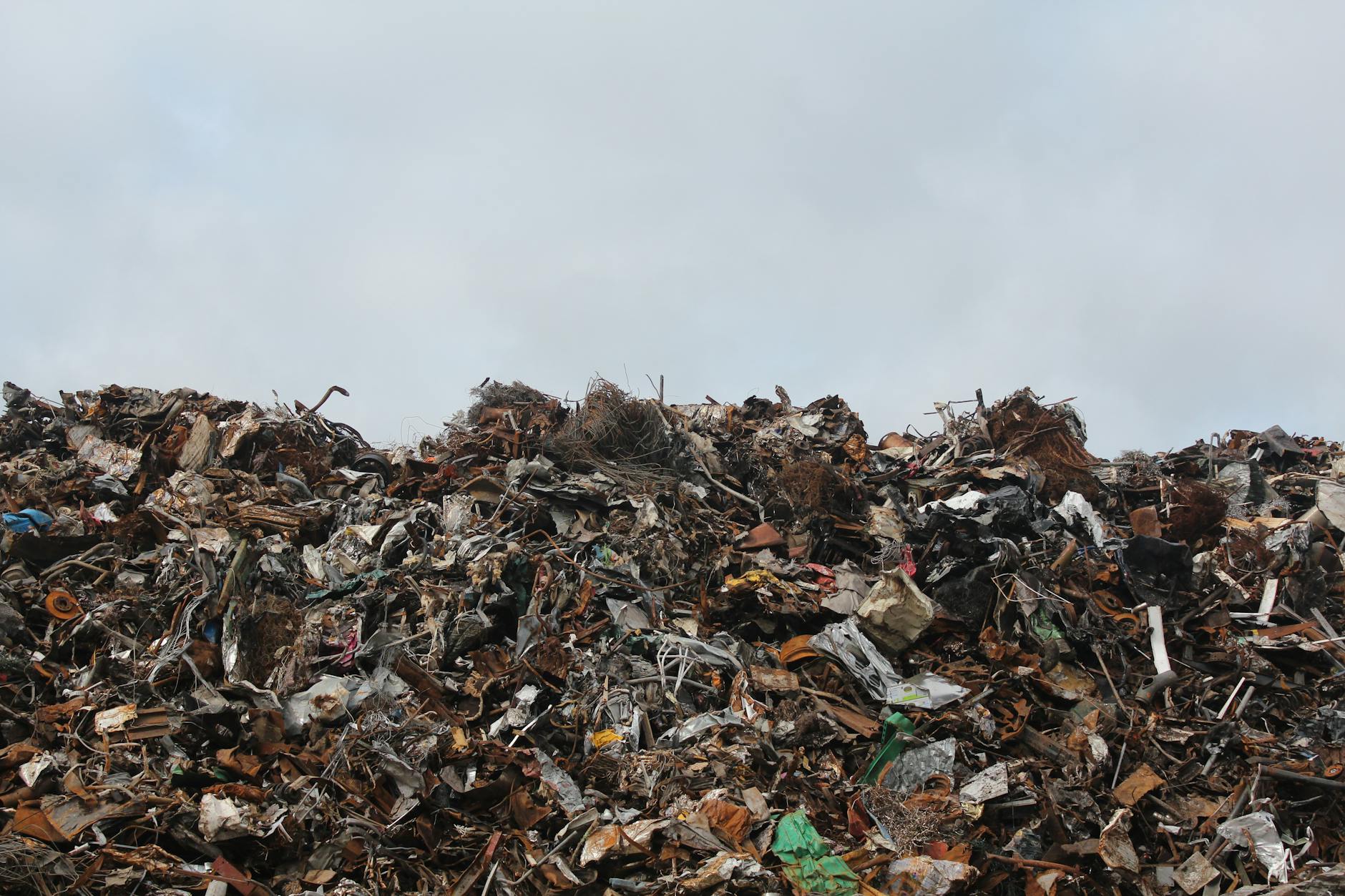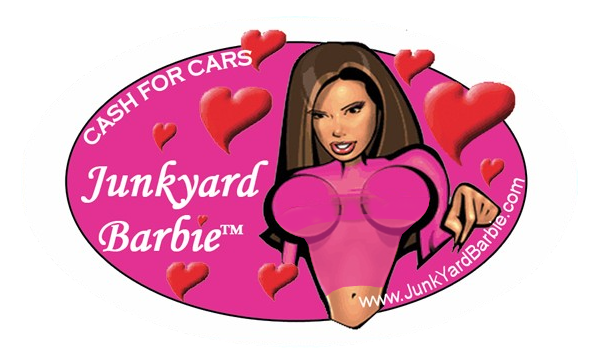Selling a junk car might seem like a straightforward process, but unexpected costs can quickly eat into your payout. From towing fees to title transfers, these hidden expenses often catch sellers off guard. Knowing what to watch out for can make the difference between getting a fair deal and walking away with less than you expected. By understanding all the potential charges upfront, you’ll avoid surprises and ensure you’re maximizing your car’s value.
Towing Fees
When selling a junk car, one of the most common hidden costs that sellers face is towing fees. While it might not come up until the deal is nearly finalized, towing charges can significantly reduce your overall profit. Knowing how towing costs are calculated and how to avoid them can save you a lot of money.
Average Towing Costs
Towing costs generally depend on two main factors: distance and whether it’s a private or professional service. On average, towing rates can range from $50 to $150 for short distances (under 10 miles). However, longer hauls can cost you $2 to $7 per mile, depending on location and the company involved.
For example, if your junk car needs to be towed 30 miles to the buyer’s yard, you could be looking at $90 to $210 in towing expenses. It doesn’t take long for these costs to eat into whatever offer you’ve secured for your car.
Additionally, keep in mind that some buyers build towing fees into their offers, meaning you’ll receive a lower upfront payment without realizing towing costs are the reason. Double-check with potential buyers if they’ll deduct towing expenses from their total offer.
How to Avoid Towing Charges
The good news? You don’t have to automatically accept towing fees as part of the process. Here are some ways to avoid this additional cost:
- Negotiate for Free Towing: Many junk car buyers include free towing as part of their service—it’s their way of closing the deal with less hassle. Always ask if towing is included before agreeing to anything.
- Prioritize Local Buyers: Picking a buyer nearby can eliminate long-distance towing needs, which keeps costs down. Plus, local buyers may already have relationships with nearby towing companies, saving you even more money.
- Opt for Buyers Offering Pick-Up Services: Some buyers will come straight to you and tow the car at absolutely no cost. Screen buyers for this selling point during your initial discussions.
- Schedule a Deal During Promotions: Towing companies occasionally run discounts or promotional offers, especially during slow seasons. Keep an eye out for these opportunities.
Avoiding towing fees might seem daunting at first, but with these strategies, you can keep more cash in your pocket. Selling your junk car shouldn’t come with surprise deductions, so make towing part of your negotiation from day one.
Title Transfer and Paperwork Fees
Selling your junk car might seem like an easy way to make some quick cash, but there’s more to it than handing over the vehicle. One of the most overlooked costs in the process involves title transfer and paperwork fees. These expenses can creep in and shrink your payout if you’re not paying close attention. Here’s what you need to know.
Importance of Proper Vehicle Documentation
Getting your paperwork in order is absolutely critical when selling a junk car. Without it, you could hit bureaucratic roadblocks or even face unexpected charges. Here’s why:
- Verifying Ownership: A clear and valid title proves that you own the vehicle and have the legal right to sell it. If you’ve misplaced your title or it’s damaged, you’ll likely need to apply for a replacement, which can delay the process and cost you additional fees.
- Avoiding Liability: When the title isn’t properly transferred, you may still be held liable for the vehicle—even after it has left your driveway. Imagine getting a call months later about unpaid parking tickets or an abandoned vehicle in your name.
- Minimized Negotiation Power: If you’re missing necessary documents, some buyers might lowball their offer, knowing the hassle of acquiring or processing them.
Essential documents typically include the vehicle title, a bill of sale, and sometimes a release of liability form. Missing even one of these could lead to holding costs during delays or fines from local authorities.
Avoiding Hidden Paperwork Costs
Let’s talk about the fees. Did you know some buyers or junkyards charge for handling the title transfer? These costs—ranging between $15 and $50 in most states—may not sound like much, but if you’re selling a junk car worth only a few hundred dollars, it’s already cutting into your profit.
Here are a few smart ways to bypass these unexpected charges:
- Choose Buyers Who Cover Paperwork Fees: Some reputable junk car buyers include title transfer and other administrative costs in their service. Always ask upfront if they’ll handle the title processing for free.
- Get Fee Clarity in Writing: Don’t hesitate to ask about fees before finalizing the deal. Whether it’s administrative costs or hidden processing charges, ensure everything is transparent.
- Research Local DMV Fees: Depending on your state, DMV offices may charge different amounts for things like title replacement or transfer. Knowing the exact figure ahead of time can prevent surprises.
Taking a moment to confirm these details before committing to a buyer could save you money and frustration. Paperwork may seem like a small piece of the puzzle, but as in any transaction, the devil is in the details.
Unanticipated Charges for Car Condition
When selling your junk car, the condition of the vehicle plays a massive role in determining its final value. Many sellers assume that because their car is classified as “junk,” its state won’t affect the price—but that’s far from the truth. Missing parts and significant damage can result in substantial deductions, turning what seemed like a modest payday into a disappointing outcome.
Impact of Missing Components

Photo by Artem Podrez
If your car is missing key components, you can expect buyers to lower their offer—or even decline to purchase it altogether. Junk cars are often purchased for their salvageable parts, so missing items mean less opportunity for buyers to profit. Here are some of the most critical components and how they affect your car’s value:
- Battery: Buyers deduct value for missing batteries because they’re often resold or reused. Even if your car is otherwise complete, this omission may mean a smaller payout.
- Catalytic Converter: By far one of the most valuable parts, catalytic converters contain precious metals like platinum and palladium. Without one, you could lose hundreds from your car’s appraised price.
- Tires and Wheels: Missing or heavily worn tires can result in significant deductions. They aren’t just functional—junkyards often sell wheels and tires separately for additional profit.
- Engine Parts: If major engine components are missing or non-functional, the car’s overall value plummets. Engines are a key source of value for both resellers and scrapyards.
- Electronics: In newer cars, GPS units, stereos, and other electronic parts are surprisingly valuable. Removing these systems, even if they’re not critical to the car’s function, can drag your offer down.
The takeaway? While you don’t always need a fully functional vehicle, it’s important to recognize that missing items add up. When you’re assessing your car’s value, remember each component has a price tag attached, and an incomplete vehicle often leads to lower offers.
Damage-Related Deductions
A car’s physical condition is another factor that determines how much money you’ll get when selling it as junk. Although you’re not expecting showroom quality, buyers still consider damage, rust, and wear when making offers. Significant issues often lead to reduced profits due to the added work necessary to extract whichever parts remain valuable.
Here’s how common types of damage can impact the sale price:
- Dents and Scratches: While minor dents might be overlooked, large, unsightly damage reduces the resale potential of individual parts like doors or panels.
- Rust: Heavily corroded metal is weak and difficult to reuse, greatly lowering its scrap value. Junk buyers will factor rust into their offer, particularly if core components like the frame or undercarriage are compromised.
- Non-Functional Parts: Engines, transmissions, or other essential systems that no longer work require extra effort to repair or replace, increasing labor costs for buyers. Sellers often see smaller payouts as a result.
- Accident Damage: If your vehicle shows signs of a major collision, such as bent frames or airbag deployment, that too will lower its value. Safety features that cannot be reused represent a lost opportunity for junkyards or parts dealers.
- Broken Windows or Mirrors: These are common deductions because glass and mirrors are costly to replace—and typically generate little value in the scrap market.
The easiest way to minimize damage-related deductions is to be as upfront about your car’s flaws as possible. Hidden damage usually leads buyers to renegotiate or reduce their offer after an inspection. If the car is clearly described, it’ll save time for both parties and lead to a smoother sale.
When it comes down to it, every scratch, missing part, or mechanical failure chips away at the potential profit. Understanding these deductions will help you manage your expectations and, where possible, prepare your car for sale to secure the best price.
Market Fluctuations in Scrap Metal Prices
Selling a junk car isn’t just about offloading an old vehicle — it’s also about timing and understanding the market. Scrap metal prices play a huge role in determining how much you’ll get for your car. These prices don’t remain static; they shift based on global, economic, and local factors. Let’s break down how scrap metal price fluctuations affect your sale and what you can do to get the best deal.
Understanding Scrap Metal Prices

Photo by Emmet
Scrap metal prices rise and fall due to a variety of factors, many of which are beyond individual control. When selling your junk car, understanding these price drivers helps you gauge potential payouts. Here are the main culprits behind metal price swings:
- Supply and Demand: Like any commodity, scrap metal value is linked to market demand. For example, during periods of high industrial activity (think construction booms), demand for recycled metals increases, pushing prices higher. Conversely, slowdowns in manufacturing or construction can lead to dips in the scrap market.
- Material Type: Not all metals are equal. Steel and iron tend to have more stable prices but are often valued lower, while materials like copper, aluminum, and stainless steel command higher revenues due to their widespread use in industries like electronics and automotive manufacturing.
- Global Events: Political instability, trade tariffs, or supply chain disruptions directly affect metal markets. For instance, a restriction on raw metal exports in one country can drive up demand for recycled materials globally.
- Seasonal Trends: Did you know even the weather plays a role? Warm months often see more construction projects and increased metal demand, which can elevate prices. Winter tends to cool the market in more ways than one.
- Recycling Costs: Costs tied to processing and recycling materials (energy, transportation, and labor) also factor into the price recyclers are willing to pay.
When selling your junk car, remember that scrap metal’s value doesn’t solely depend on what’s under your hood. The global economy, local market conditions, and even Mother Nature all help set the sticker price.
Timing Your Sale Strategically
If you want to get the most out of your junk car, timing matters. Selling when scrap metal prices are favorable can make a noticeable difference in your final payout. But how do you know when the “right time” is?
Here are actionable strategies to help you maximize your profit:
- Stay Informed: Keep an eye on the current scrap metal market. Websites like Rockaway Recycling or Metal Loop regularly update scrap prices. Being aware of price trends allows you to act when values are peaking.
- Sell in Spring or Summer: Historically, prices are higher in warmer months due to increased construction and manufacturing demand. While it’s not a guarantee, it’s a wise seasonal pattern to follow.
- Watch for Global Events: If you hear about raw material shortages, conflicts, or new tariffs affecting metal production, this could signal a favorable time to sell.
- Choose Local Buyers Wisely: Regional factors often influence offers. A community with a thriving manufacturing base, for example, might pay more since recycled metal is needed for nearby operations.
- Skip Low-Volume Periods: Avoid selling your car in times of recession or after major global disruptions (e.g., the pandemic) as scrap prices may be at a low.
In this market, patience is often a virtue. By carefully planning your sale, paying attention to market changes, and knowing where prices are headed, you’ll avoid selling at a loss and make the most out of your junk car’s value.
Choosing the Right Buyer
Picking the right buyer for your junk car can feel tricky, especially when you’re trying to spot unreliable buyers while maximizing your payout. With the potential for scams, vague agreements, and hidden fees, finding a reputable buyer is critical to ensuring a fair and smooth transaction. The following tips will help you steer clear of dishonest practices and understand why reputation plays a significant role in this process.
Red Flags When Dealing With Buyers
Not every junk car buyer has your best interest at heart. Some use tactics that reduce your payout or create unnecessary stress, while others might even operate without proper licenses. Here are some warning signs to watch for before making a deal:
- Suspiciously Low Offers: If a buyer offers a price that seems way below market value, especially without thoroughly assessing your vehicle, it’s a major red flag. Some buyers throw out lowball offers hoping sellers are desperate enough to accept.
- Unexpected Deductions: Always ask for a breakdown of how the final price is calculated. A common scam involves presenting a fair initial offer, only to reduce it later due to vague “inspection issues” or unverified claims about the car’s condition. If the buyer can’t provide clarity, walk away.
- Vague or Missing Payment Terms: Legitimate buyers provide clear information on how and when you’ll be paid—often cash or a check upon vehicle pick-up. Be cautious of buyers who insist on paying at a later date or in unconventional methods like gift cards.
- No Business License: Always verify that the buyer is licensed. Operating without a license is a red flag that they might not follow legal or ethical practices. Additionally, unlicensed buyers likely won’t help with proper paperwork or title transfers, leaving you exposed to liabilities.
- Unclear Policies on Towing Fees: Reputable buyers will offer free towing upfront or factor the cost into their estimate transparently. If a buyer surprises you with towing costs at the last minute, think twice.
- Pressure Tactics: Beware of buyers who rush you into deciding, using phrases like “this offer won’t last,” or attempt to make you feel cornered into a sale.
The bottom line? Trust your gut. If you feel uneasy about a buyer’s practices, don’t hesitate to seek another offer. Reliable buyers will prioritize transparency and won’t shy away from answering your questions.
Why Reputation Matters
Your choice of buyer can make or break how smoothly and profitably the process goes. A reputable buyer won’t just follow fair practices—they’ll also ensure that the sale adheres to local laws, leaving you with peace of mind. But how can you verify a buyer’s reputation? Here’s what to consider:
- Check Reviews and Ratings: Look for online reviews on Google, Yelp, or trusted platforms related to junk car buying. Buyers with consistently good feedback are generally safer bets. Pay attention to reviews mentioning clear communication and timely payments.
- Transparency is Key: A trustworthy buyer will openly discuss all aspects of the transaction, including pricing, fees, towing, and paperwork. If you sense evasiveness or if the answers seem too vague, that’s a sign to move on.
- Ask for References: Some junk car companies are happy to provide references or examples of past transactions. It’s an extra step that can give you insight into their professionalism.
- Established Business History: Choose buyers with a clear track record and an accessible business presence—whether through a verified website, physical office, or local listings. Avoid buyers without an online presence or those unwilling to share identification or licensing.
- Focus on Local Buyers: Local buyers often understand regional market values better and are easier to track if any disputes arise. Being close by also means less hassle with towing logistics, which matters when trying to avoid additional costs.
Why does this all matter? For one, a licensed, well-reviewed buyer ensures you’re not taken advantage of. They also handle the documentation properly, reducing the risk of future liabilities tied to your car (like unpaid parking tickets or title headaches). When in doubt, spend time researching your options instead of rushing into a decision.
By keeping an eye on red flags and prioritizing reputable buyers, you’ll not only avoid unnecessary fees but also fetch a fair value for your junk car without the headache of dealing with shady practices.
Conclusion
Selling a junk car can be a quick way to earn some extra cash, but hidden costs can sneak up and diminish your final payout. From towing charges to title transfer fees, these unexpected expenses highlight the importance of doing your homework before sealing the deal. Each step—whether it’s understanding market trends, negotiating terms, or scrutinizing buyers—impacts the overall profit you take home.
Proactively addressing these potential pitfalls ensures you’re not caught off guard. Research buyers thoroughly, ask detailed questions, and don’t settle for vague answers. The effort you invest upfront can save you time, frustration, and money.
Ready to turn that unwanted car into cash? Avoid surprises, take charge of the process, and make every decision count. Have you ever encountered hidden costs when selling a car? Share your experience in the comments!






